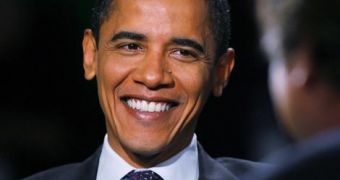Yesterday, November 4th, 2008, US citizens from all over the world (including in space) have chosen Barack Obama as their 44th president. His approach to science support and development had attracted praises and votes from a large number of Nobel prize winners. Two months ago, he declared that the US had reduced too greatly its “support for science at a time when many other nations are increasing it, a situation that already threatens our leadership in many critical areas of science.”
While it may not be very appealing to many, since it hints at a competitive view rather than a big picture one, the effort that the new president is bound to make for scientific endeavors may yet help the world change. Contrary to UC Berkeley physicist Richard Muller's expectations described in a previous article, Obama has no scientific background, and that is why a scientific adviser must be chosen as early as possible, unlike during the Bush administration, which took 10 months to choose one (as an oddity, the job is only 50 years old, dating from when Russians launched Sputnik).
Overall, among the promises made by the new American president are the resuming of funding operations for embryonic stem cell research (banned by the previous Bush administration), the re-opening of the National Aeronautics and Space Council (closed by the other George Bush in 1993). As for the issue of global warming, Obama promised to take measures towards cutting off harmful gas emissions to the levels of 20 years ago in a bit more than a decade.
A major concern from public and state institutions is related to Obama's view on health care, since, even if American citizens pay (almost twice) more for it than those in other developed countries, they don't get more benefits from the health system in return. The president has allocated beforehand billions of dollars to a revitalizing process of the national health system, fully supporting biomedical research and bio-terrorism defensive actions. Now, it only remains to be seen whether the results will match his campaign promises.

 14 DAY TRIAL //
14 DAY TRIAL //